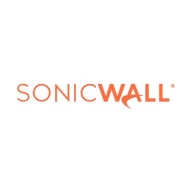

Check Point Remote Access VPN and SonicWall NetExtender compete in the remote access VPN category. Check Point seems to have an advantage with its robust security integration and centralized management.
Features: Check Point Remote Access VPN seamlessly integrates with Check Point firewalls and Active Directory, offers built-in compliance checks and multifactor authentication, and provides centralized management for cohesive security. SonicWall NetExtender is renowned for its ease of use, stable SSL VPN connections, and quality encryption, which simplifies training for non-tech-savvy users.
Room for Improvement: Check Point could enhance its client installation and update processes for non-Windows systems, improve Linux integration, and increase automation in client deployment. SonicWall NetExtender requires improvements in user interface design, connection reliability, and credential management. Both can improve in user configuration streamlining and device compatibility.
Ease of Deployment and Customer Service: Check Point offers versatile deployment across on-premises and hybrid cloud environments with commendable technical support, though responsiveness varies regionally. SonicWall NetExtender offers straightforward on-premises deployment and generally positive support but lacks depth for more complex technical issues.
Pricing and ROI: Check Point's pricing is competitive but may be higher due to its comprehensive features, offering significant ROI by enabling flexible remote work. SonicWall NetExtender is more budget-friendly with straightforward licensing, appealing to cost-sensitive setups. While both provide ROI, Check Point's broader security ecosystem may justify its higher cost for advanced needs.
| Product | Market Share (%) |
|---|---|
| Check Point Remote Access VPN | 3.3% |
| SonicWall Netextender | 3.3% |
| Other | 93.4% |


| Company Size | Count |
|---|---|
| Small Business | 54 |
| Midsize Enterprise | 31 |
| Large Enterprise | 34 |
| Company Size | Count |
|---|---|
| Small Business | 10 |
| Midsize Enterprise | 2 |
| Large Enterprise | 2 |
Remote secure access VPN is a solution that provides users with remote access to an organization’s network. The host may have VPN client software loaded or use a web-based client. The solution leverages security features like multi-factor authentication, endpoint scanning, and encryption of all data in motion.
Check Point Remote Access VPN provides individuals with protected and efficient access to a company network from anywhere. This strategy fosters collaboration and connectivity between distributed teams and offices.
Features of Check Point Remote Access VPN
Key features of the secure remote access VPN include:
The system enforces endpoint security with endpoint compliance. It monitors and verifies the security status of each endpoint and reports back to the Security Gateway. The gateway, in turn, checks the compliance level and directs the connectivity to the right resources.
Users can deploy the Remote Access VPN in one of three ways:
Remote Access VPN is centrally managed. The centralized console enables management and enforcement of policies with a single log-in.
The Remote Access VPN has a web portal that users can use to connect securely to corporate applications, such as web-based resources, file-sharing, and email. Administrators can customize the web portal to match the brand identity.
Remote Access VPN offers two choices for remote access:
The authentication features include password management, RADIUS challenge/response, CAPI software, and hardware tokens. P12 certificates, and SecurID.
The system establishes a VPN tunnel on demand. It also re-arranges connections when roaming. The tunnel can automatically tear down when the user is on the corporate LAN.
There are several connection features, such as Hotspot detection, office mode IP, split tunneling, and automatic fallback to HTTPS.
Benefits of Check Point Remote Access VPN
One of the key advantages of Remote Access VPN is that it provides remote workers with a secure way to connect to a corporate network from any device, including their personal devices. The data encryption in transit enables them to securely access the resources they need for their tasks.
It also provides IT support and technicians with a faster way to troubleshoot software issues. In the case of a ticket, IT doesn’t need to go to the server location to fix the problem but can troubleshoot it remotely.
A remote secure access VPN is also an affordable alternative for small and medium-sized businesses, without requiring expensive infrastructure.
Reviews from Real Users
A Global IT Network and Security Service Senior Specialist at a manufacturing company who uses Check Point Remote Access VPN says, "I found the MEP feature the most valuable. This has improved users' latency allowing the users to connect to the nearest Azure Check Point VM."
"Organizations that already use the Check Point NGFW Solution do not require any additional hardware, which makes the implementation straightforward and reduces the time to go live," explains Basil D., Senior Manager at a financial services firm.
Manuel B., a Voice and data infrastructure specialist at a tech services company, says that "The IPSec VPN, Mobile Access, and Identity Awareness are three of the blades with which we have been working with since the pandemic. This has given us great mobility, making our network more dynamic."
SonicWall Netextender provides secure remote access, supporting remote work with valuable features like two-factor authentication, low latency, and integration with Microsoft identity management.
SonicWall Netextender facilitates secure client-to-site VPN connections for remote staff, integrating seamlessly with Microsoft identity management and using existing credentials like Active Directory. Its cost-effectiveness and detailed documentation attract enterprises in sectors such as insurance, healthcare, and education. Despite excellent control over routing, the intuitive setup could be improved, with users experiencing performance and licensing flexibility issues, especially with multi-factor authentication. While integration with SAML ensures seamless authentication, high bandwidth consumption and the outdated interface are mentioned for enhancement. Overall, SonicWall Netextender supports remote file transfers and access to Microsoft 365 portals, although additional features like automatic connection on startup and AI integration would address current user demands.
What features does SonicWall Netextender offer?Enterprises from insurance, healthcare, and education sectors benefit from SonicWall Netextender by enabling secure remote or hybrid work. Companies facilitate efficient management of remote work, providing access to corporate resources from any location. Challenges include the authentication setup, but its support for remote access to Microsoft 365 and secure file transfers offer substantial utility for these industries.
We monitor all Enterprise Infrastructure VPN reviews to prevent fraudulent reviews and keep review quality high. We do not post reviews by company employees or direct competitors. We validate each review for authenticity via cross-reference with LinkedIn, and personal follow-up with the reviewer when necessary.